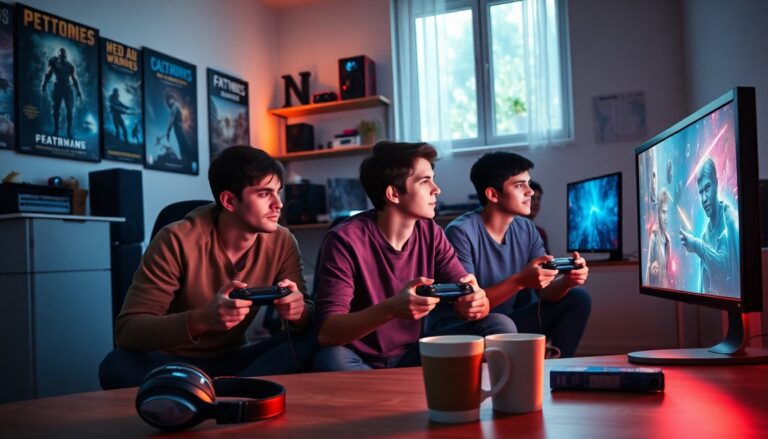Argomenti trattati
In the realm of video games, a recent statement by Jacob Navok, the CEO of Genvid and former director at Square Enix, has ignited a spirited discussion about the adoption of generative AI. His provocative claim that “Gen Z loves AI slop” raises questions about the true sentiment of younger gamers towards AI-generated content. This assertion follows the release of the popular game “Steal a Brainrot” on Roblox, which has captivated over 25 million concurrent players. However, does this popularity translate into an endorsement of AI-generated content?
Navok’s comments reflect a broader trend in the gaming industry, where the integration of artificial intelligence is becoming increasingly common. However, the reception of such advancements has been mixed, with some players expressing concerns over the potential loss of human creativity in favor of computer-generated alternatives. As more companies embrace AI technologies, it is essential to explore the implications for both developers and gamers alike.
The rise of generative AI in gaming
The gaming landscape has evolved significantly in recent years, particularly with the emergence of generative AI tools. These technologies, which can create text, images, and even audio, have begun to reshape how games are developed. Navok pointed out that while there may be considerable backlash against AI, gamers seem largely indifferent to these concerns, as evidenced by the success of games like “Steal a Brainrot.” This phenomenon raises important questions about the future direction of the gaming industry.
AI’s impact on game development
Generative AI is not just a passing trend; it has become a cornerstone for many gaming studios. Developers are employing AI in various stages of production, from character design to voice generation. For instance, the development team behind the popular title “Arc Raiders” faced criticism when they opted to use AI for character voices, igniting a debate about the replacement of human voice actors. Similarly, the creators of “Call of Duty: Black Ops 7” faced backlash for incorporating AI-generated artwork that closely mirrored the style of Studio Ghibli, a renowned animation studio.
In response to the growing discontent, established gaming companies like Ubisoft have had to retract AI-generated artwork for upcoming projects. The backlash indicates that while AI can streamline production, it also risks alienating audiences if not executed thoughtfully. The question remains: can AI-generated content coexist with the traditional artistry that gamers cherish?
Perspectives from the gaming community
Many voices within the gaming community have emerged in response to Navok’s remarks. Critics argue that equating the success of a single game with Gen Z’s acceptance of AI slop is a gross oversimplification. One user pointed out that the vast number of McDonald’s locations does not equate to a lack of interest in high-quality cuisine, suggesting that just because a game is popular, it does not mean players are satisfied with subpar content.
Quality over quantity
Another community member highlighted that the distinction between different gaming platforms is crucial. Comparing a Roblox game with high revenue-per-user titles on Steam is akin to juxtaposing apples and oranges. Gamers are likely to embrace well-crafted experiences, regardless of whether AI tools were used in their creation. The sentiment shared among many is that the quality of the game will ultimately determine its success, rather than the technologies employed in its development.
Despite the controversy, numerous executives within the gaming industry maintain that the future lies in the integration of AI technologies. For example, Electronic Arts’ CEO Andrew Wilson stated that AI is central to their operations, promising to enrich the gaming experience by creating more vibrant worlds. Yet, the challenge of balancing innovation with the preservation of human creativity looms large.
The debate surrounding generative AI in gaming reflects a broader conversation about technology’s role in creative fields. While some industry leaders forecast a future dominated by AI advancements, others, like John Buckley, CEO of Pocketpair, argue against the reliance on AI-generated games. He emphasized that their company would not partner with projects heavily focused on AI or NFTs, highlighting a divide in the industry.
As the landscape of video games continues to evolve, it remains to be seen how generative AI will shape player experiences and industry standards. Gamers, particularly within the Gen Z demographic, will play a crucial role in determining the trajectory of this technological integration. The challenge for developers will be to harness AI’s capabilities while ensuring that the essence of gaming—creativity, community, and connection—remains intact.

